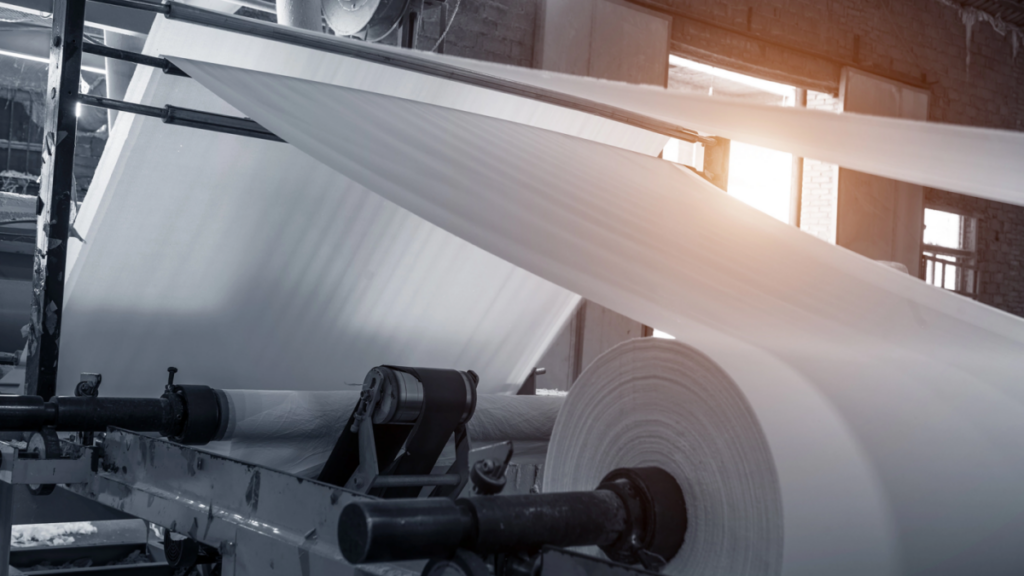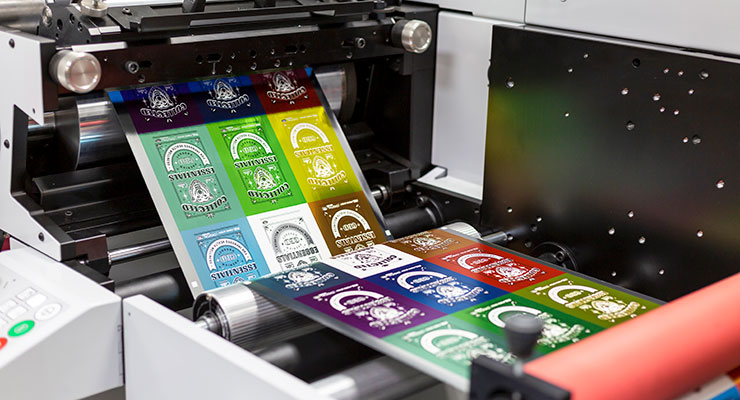Business
Webineering Group: Why Proper Web Handling Matters in Manufacturing

Web handling refers to the entire industrial process of precisely controlling webs for manufacturing efficiency. It is a vital part of the manufacturing process, as a lot depends on how well the process is carried out. This is especially true for printing, packaging, textiles, and several other industries.
Although not a requirement for all manufacturing industries, it is a requirement for industries that produce final products from thin layered forms. The thin layered materials can be in the form of paper, foil, film, and plastic. For more information on what it entails, you can see: https://www.researchgate.net/.
Proper handling of these processes is in the best interest of these industries. Read on to find out reasons why this is the case.
The Importance of Proper Web Handling

Getting web handling right helps manufacturing companies avoid several complications, some of which can be very costly. There are a number of benefits that arise from getting the process right and they include:
Prevention of Material Waste and Defects
Profitability in the manufacturing business is largely down to making the most of raw materials.This can be in the form of web, such as paper, foil, film, and plastic. Proper web handling increases profitability by preventing or (at least) significantly minimizing defects that can result in wastage. This includes defects like misalignment, tearing, and wrinkling.
Improved Product Quality
Consumers are quick to lose their trust in companies that produce poor-quality products. This leads to reduced patronage, consumer complaints, and regulatory troubles, among other things.
For this reason, identifying and implementing strategies that guarantee improved product quality is always a welcomed development, which is whereproper web handling comes in.
It addresses several issues responsible for poor product quality in several manufacturing industries. For example, it plays a key role in maintaining uniformity by ensuring consistency in alignment and tension while webs are being processed.
Production Efficiency
The production process can come to a standstill as a result of poor web handling. Conversely, it also means that proper handling of these processes will contribute immensely to production efficiency by making it possible to meet and even exceed production targets. You can read this article for more information on how it contributes to production efficiency.
Reduced Maintenance Cost
Multiple web handling issues can lead to service downtime. Some common challenges that can occur include:
- Breakage
- Inconsistent Tension
- Sagging and Dragging
- Edge Curling and Waviness
- Creep and Shrinkage
- Tangling and Twisting
- Flutter and Oscillation
Alignment and tension inconsistencies are,very often, the root cause of most of the above-listed issues. However, these issues do not only affect product quality and optimal usage of raw materials.They also adversely affect machinery by increasing the likelihood of wear and tear.
When a company’s machinery is constantly put under these unfavorable working conditions,the long-term effects will often resultin costly repairs. As a result, ensuring that these processes are carried out correctly also guarantees the longevity and profitability of production equipment.
Best Practices for Ensuring Proper Web Handling
Proper web handling requires adherence to the following guidelines:
Regular Maintenance and Calibration of Equipment
Machines that process these thin materials have to be in top working condition, which is why regular maintenance and calibration is necessary. This is one aspect of preventative maintenance that must be taken seriously.
Use of the Right Systems
Proper web handling is ultimately about ensuring precise control when processing thin materials like paper, film, plastic, and foil. Deploy the best systems to ensure optimal performance. These include advanced tension control and web guiding systems that can guarantee precision and minimize errors while processing these thin materials at various production phases.
In essence, implementing automation is crucial for achieving this. This is because it helps with accuracy by preventing or (at least) significantly reducing human errors when processing these thin materials attheir different production phases.
Training and Retraining of Operators
Though the process is mostly automated, there is some level of human involvement which can impact the process. For this reason, the expertise of those involved in these processes is essential for success and calls for their training.
They need to be trained on various web processing techniques and the implications of using them all. This ensures that they can identify and implement the best techniques.
Since this is a crucial point in the process, hiring professionals who specialize in conducting such trainings and are experts at providing web-handling solutions is important. You can check out Webineering Group for more on how the services of such professionals benefit concerned manufacturing industries. You can also learn how to take advantage of their services.
Conclusion
The importance of proper web handling for concerned manufacturing industries cannot be overemphasized. Those tasked with handling this process need the right training. Even when they’ve previously been trained, they need to stay updated with constant refresher courses.
It is therefore wise for a company to set aside a reasonable budget for this.It should be seen as an investment and not a mere expense for these industries.















